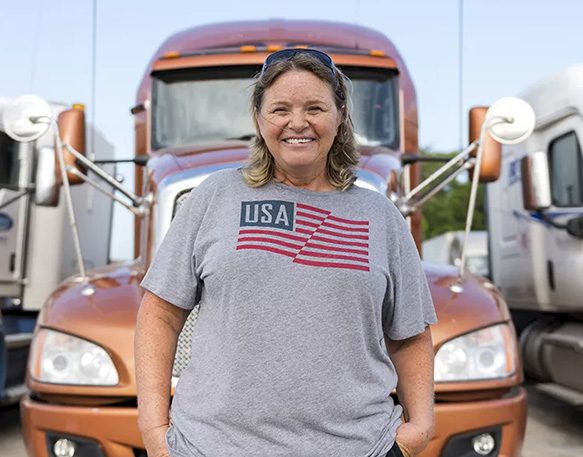Freight Factoring Companies
You’ll also need to do your due diligence to find a trusted freight factoring company. Otherwise, you could end up waiting months for advances — or losing money to predatory terms.
When choosing a freight factoring company, find a company that offers great terms and services. Look for a company that:
- Offers digital options for submitting your freight invoices
- Has 24/7 customer service
- Runs credit checks on shippers and brokers
- Doesn’t withhold or significantly reduce payments for smaller loads
Why do I need factoring?
You may not realize it, but freight factoring has been around for decades. It’s a well-established process that has steadily grown in popularity over the years due to global economic factors and the ever-increasing costs associated with hauling freight. Despite the prevalence of well-established, reputable factoring companies, many people continue to wonder about the true value and purpose of factoring.
One of the most common questions that carriers and owner-operators ask is: “Why do I need factoring?” It can be difficult to understand the benefits of factoring for trucking companies if you aren’t familiar with how the factoring process works. After all, factoring companies take a small percentage of your invoice in return for offering you cash. No one wants to lose any part of their invoice. But for many trucking companies, the benefits of factoring far outweigh the minimal cost of losing a small amount of your invoice.
Learn how factoring can help you get the funds you need as soon as you make a delivery — no bank loans, personal credit checks, or credit cards required!
In this piece, you’ll learn all about factoring — how it works, why companies do it, and more — so that you have the information you need to answer the question “Why do I need factoring” for yourself.
Types of factoring for trucking companies: recourse vs. non-recourse
Now that we’ve reviewed the basics of how trucking factoring works, we need to address the difference between the two different types of factoring: recourse and non-recourse.
The vast majority of companies, whether they state it or not, only offer recourse factoring. Recourse factoring plays out following the steps laid out above. The only added step is that if your customer doesn’t pay the invoice (or they pay it late), you will be charged and forced to return the amount that the factoring company paid you.
That means with recourse factoring, the factoring company itself does not accept any risk. While you get the funds you are owed for your invoice right away, it isn’t guaranteed that you’ll get to keep those funds until your customer pays the value of the invoice to the factoring company.
For many carriers, this isn’t particularly appealing. That’s why some factoring companies market non-recourse factoring as an alternative. With non-recourse factoring, the factoring company accepts the risk associated with the invoice. The fee might be a little higher than with the recourse method, but in return the factoring company guarantees that you’ll be able to keep the payment you received from them whether or not the customer pays the factoring company.
The problem is that most companies that claim to offer non-recourse factoring don’t actually offer real non-recourse factoring. Typically, the only scenario in which they won’t collect an unpaid invoice from you is if the customer files for bankruptcy between the time you submit the invoice and the customer pays it. This happens very rarely, especially when you consider having to confirm the customer is credit approved by factor prior to accepting the load — which ultimately means that most non-recourse options are really the same as recourse.
Choosing the right type of factoring for you
There’s a lot to consider when deciding whether recourse or non-recourse factoring is the right choice for your trucking company.
In the end, understanding the differences between the two will only get you so far. The most important decision is finding and working with a reputable factoring company.
Whether you choose recourse or non-recourse factoring, start by sitting down with a reputable factoring company to discuss their terms. If possible, choose a factor that offers both recourse and non-recourse factoring options so you can learn the specifics of each approach and make your decision accordingly. Working with a company that offers both also means it will be easier to switch to the other factoring option at any point if you feel the need to do so.
At DAT, we know that starting the factoring process can be tough. It’s easy to get overwhelmed by the jargon and different options out there. But we also know that factoring can be very beneficial to the trucking companies that embrace it. That’s why we’ve integrated Outgo, a DAT product, into the DAT One Load Board you know and love. Within DAT One, you’ll be able to identify which loads can be factored with Outgo before you even pick them up — just look for the loads with the dollar sign ($). Start factoring with Outgo, a DAT product, today.




